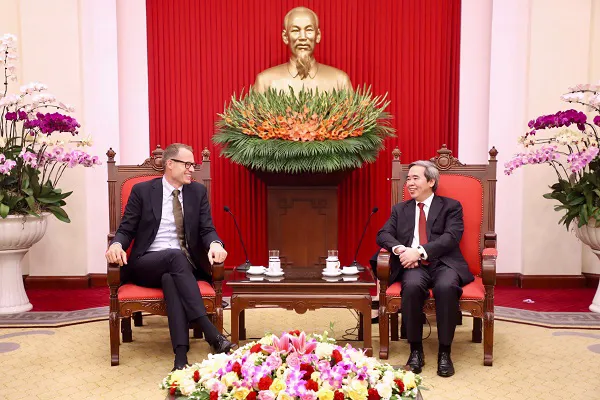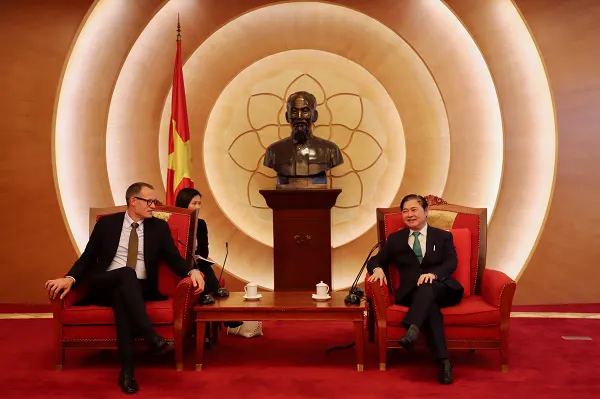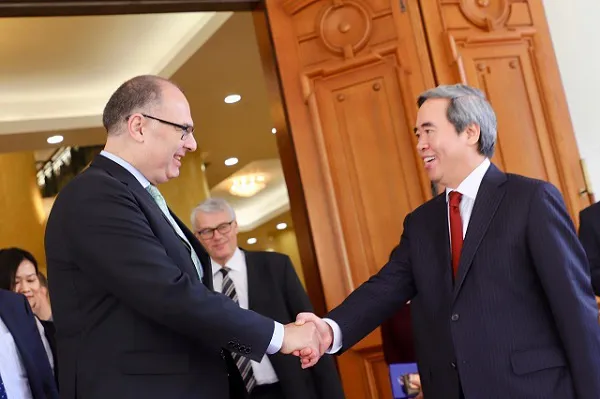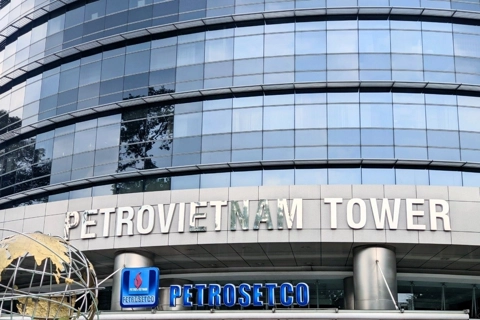Denmark extends support to Vietnam in energy sector
Denmark has over the past decade been continuing its commitment to help Vietnam pursue cleaner and cost-effective energy in the power mix.
Danish Permanent Secretary for Climate, Energy and Utilities, Mr. Morten Bæk has visited Vietnam to enhance the government-to-government partnership between Vietnam and Denmark within the energy sector.
| Mr. Morten Bæk, Danish Permanent Secretary for Climate, Energy and Utilities, and Nguyen Van Binh, head of the Economic Affairs of the Central Committee of the Communist Party of Vietnam. Photo: Danish Embassy in Hanoi |
| Mr. Morten Bæk, Danish Permanent Secretary for Climate, Energy and Utilities, and Phan Xuan Dung, Chairman of the Committee on Science, Technology and Environment of the National Assembly. Photo: Danish Embassy in Hanoi |
One of the highlights of the visit is the launch of the Vietnam Energy Outlook Report 2019 which is a landmark in the two countries’ cooperation within energy modeling.
| Danish Ambassador to Vietnam Kim Højlund Christensen and Nguyen Van Binh, head of the Economic Affairs of the Central Committee of the Communist Party of Vietnam. Photo: Danish Embassy in Hanoi |
Denmark’s strong support in energy sector
In November 2011, Denmark signed a joint declaration with the government of Vietnam aimed at building a strategic partnership within the areas of climate change, environment, energy and green growth.
This entails continued support to development and implementation of strategies, programs and action plans of Vietnam in the field of climate change, environment, energy and green growth.
Accordingly, the two countries agree to encourage the use of Danish expertise and technology within energy efficiency and renewable energy.
The first phase of the Energy Partnership Programme between Denmark and Vietnam (DEPP) started in 2013. The second phase started in 2017 and will be completed in 2020. A third phase with a 5-year duration is expected to start in 2020.
The program, which is implemented by the Danish Energy Agency and the Vietnamese Ministry of Industry and Trade, supports the engagements namely (1) Capacity development for long-term energy sector planning with the Electricity and Renewable Energy Authority; (2) Capacity development for Renewable Energy Integration into the power system with the Electricity Regulatory Authority of Vietnam; (3) Low carbon development in the industrial sector with the Energy Efficiency and Sustainable Development Department.
Some highlights of DEPP achievements include (1) Technology catalogue for power generation and storage technologies published in May 2019; (2) Energy Outlook Report 2019 published in November 2019; (3) Support to capacity improvement of the Vietnamese power system operator in renewable energy forecast; (4) Support to power market development including Grid Code revision and securing the availability of ancillary services; (5) Improved energy efficiency regulatory framework and enforcement capacity at provincial level and on national level.












